Brain health and why is it important?
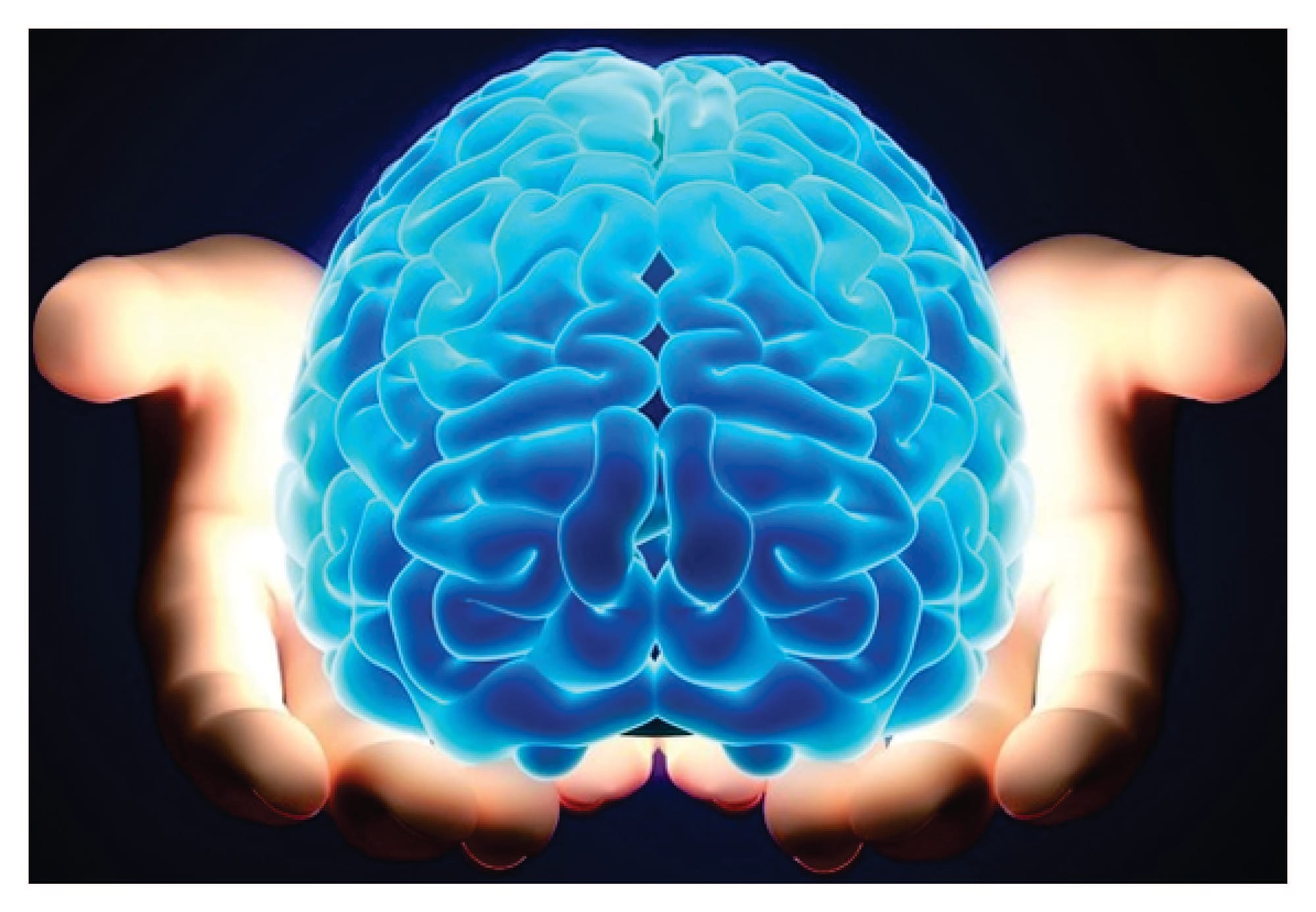
Maintaining a healthy brain during one’s life is the uppermost goal in pursuing health and longevity. As the population ages, the burden of neurological disorders and challenges for the preservation of brain health increase. It is therefore vital to understand what brain health is and why it is important.
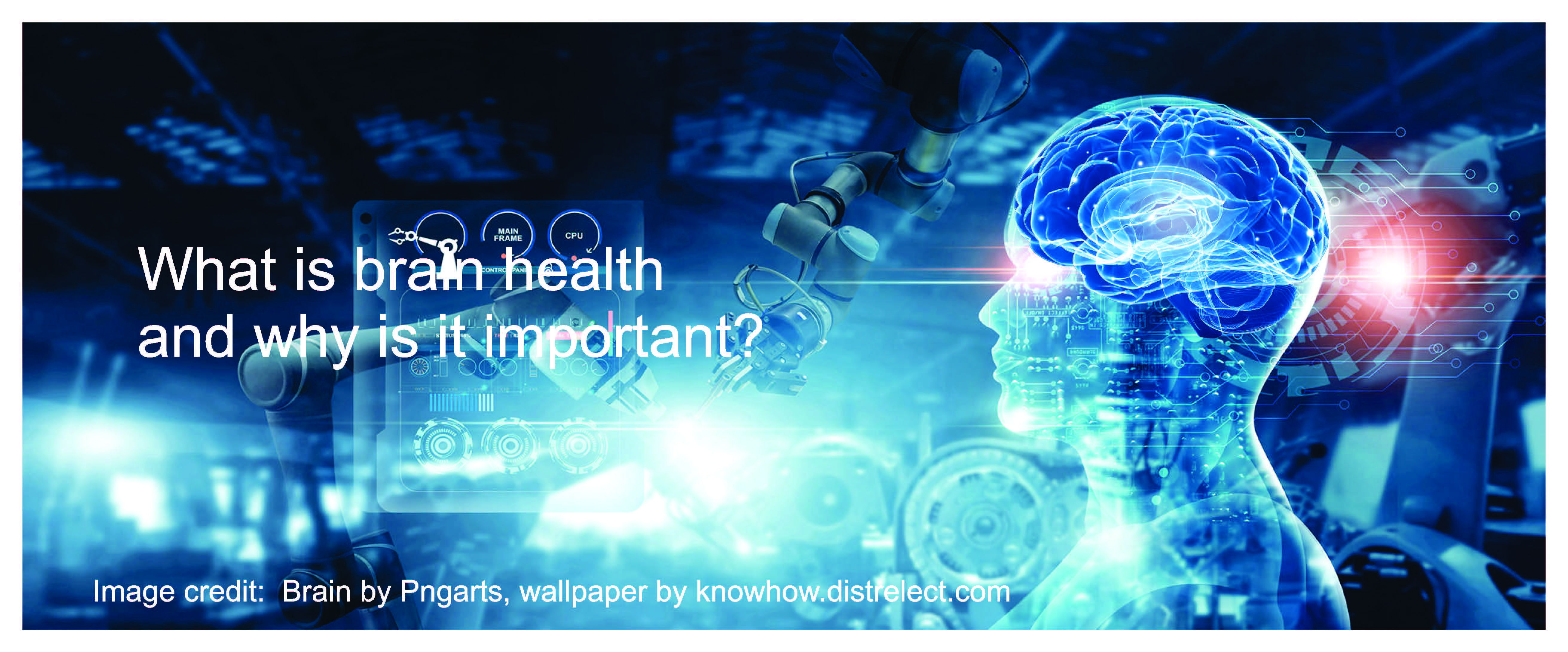
The brain is a complex organ and has at least three levels of functions that affect all aspects of our daily lives: interpretation of senses and control of movement; maintenance of cognitive, mental, and emotional processes; and maintenance of normal behaviour and social cognition. Brain health may therefore be defined as the preservation of optimal brain integrity and mental and cognitive function at a given age in the absence of overt brain diseases that affect normal brain function.
Several neurological disorders may disrupt brain function and affect humans’ health. Medically, neurological disorders that cause brain dysfunction can be classified into three groups:
- Brain diseases with overt damage to brain structures, such as cerebrovascular diseases, traumatic brain injury, brain tumours, meningitis, and communication and sensory disorders
- Functional brain disorders with detectable destruction of brain connections or networks, such as neurodegenerative diseases (eg, Parkinson’s disease, Alzheimer’s disease, and other dementias) and mental disorders (eg, schizophrenia, depression, bipolar disorder, alcoholism, and drug abuse)
- Other brain disorders without detectable structural or functional impairment, such as migraine and sleep disorders.
These neurological disorders may have different or common effects on brain health and function. For instance, Alzheimer’s disease is the main type of dementia, with a decline in different domains of cognitive function. Mood disorders may cause dysfunction in execution, reward processing, and emotional regulations. In addition to physical disability, aphasia, gait and balance problems, and cerebrovascular diseases may lead to cognitive impairment and dementia, which are neglected by both patients and physicians. (Source: National Library of Medicine)
Some parts of the brain and their functions
AMYGDALA
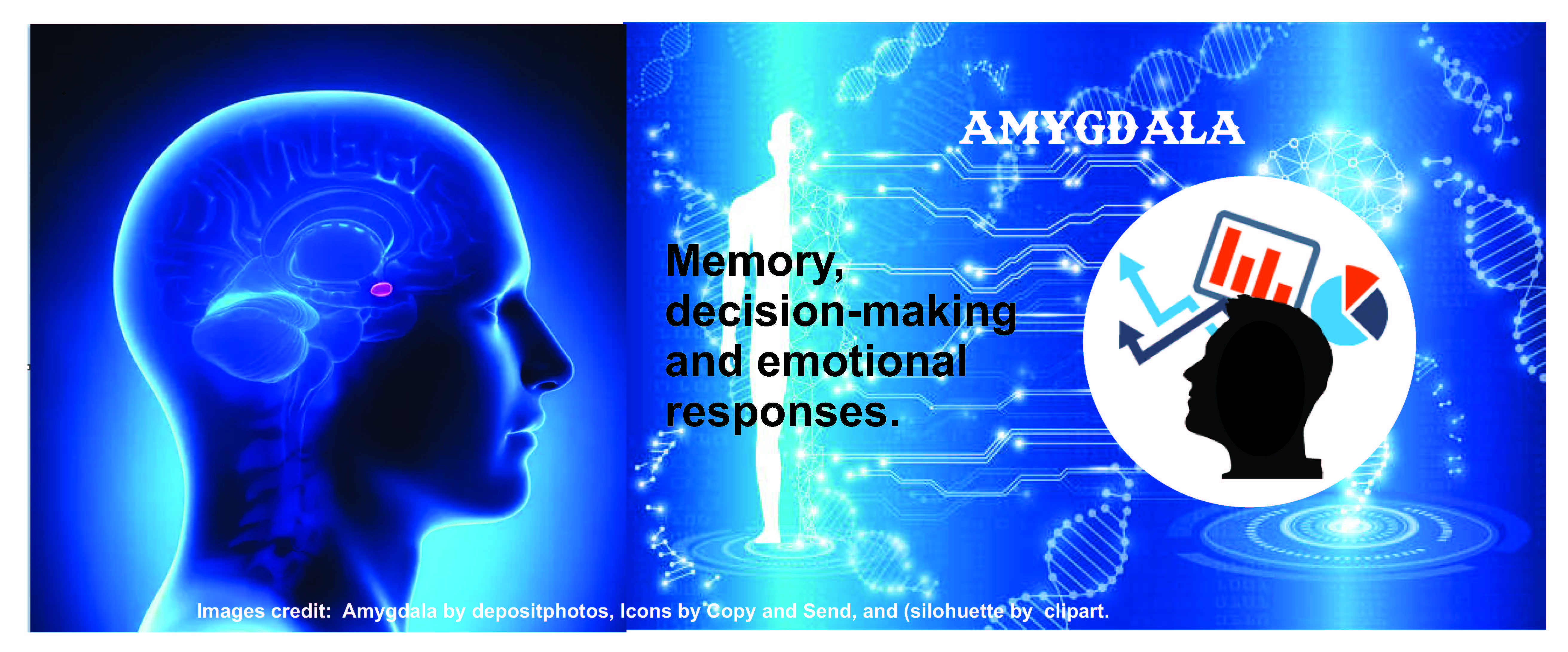
Your amygdala is a small part of your brain, but it has a big job. It’s a major processing center for emotions. It also links your emotions to many other brain abilities, especially memories, learning and your senses. When it doesn’t work, as it should, it can cause or contribute to disruptive feelings and symptoms.
Your amygdala is a small, almond-shaped structure inside of your brain. It’s part of a larger network in your brain called the limbic system. When it comes to your survival, your amygdala and limbic system are extremely important. These are parts of your brain that automatically detect danger. They also play a role in behavior, emotional control and learning.
BASAL GANGLIA
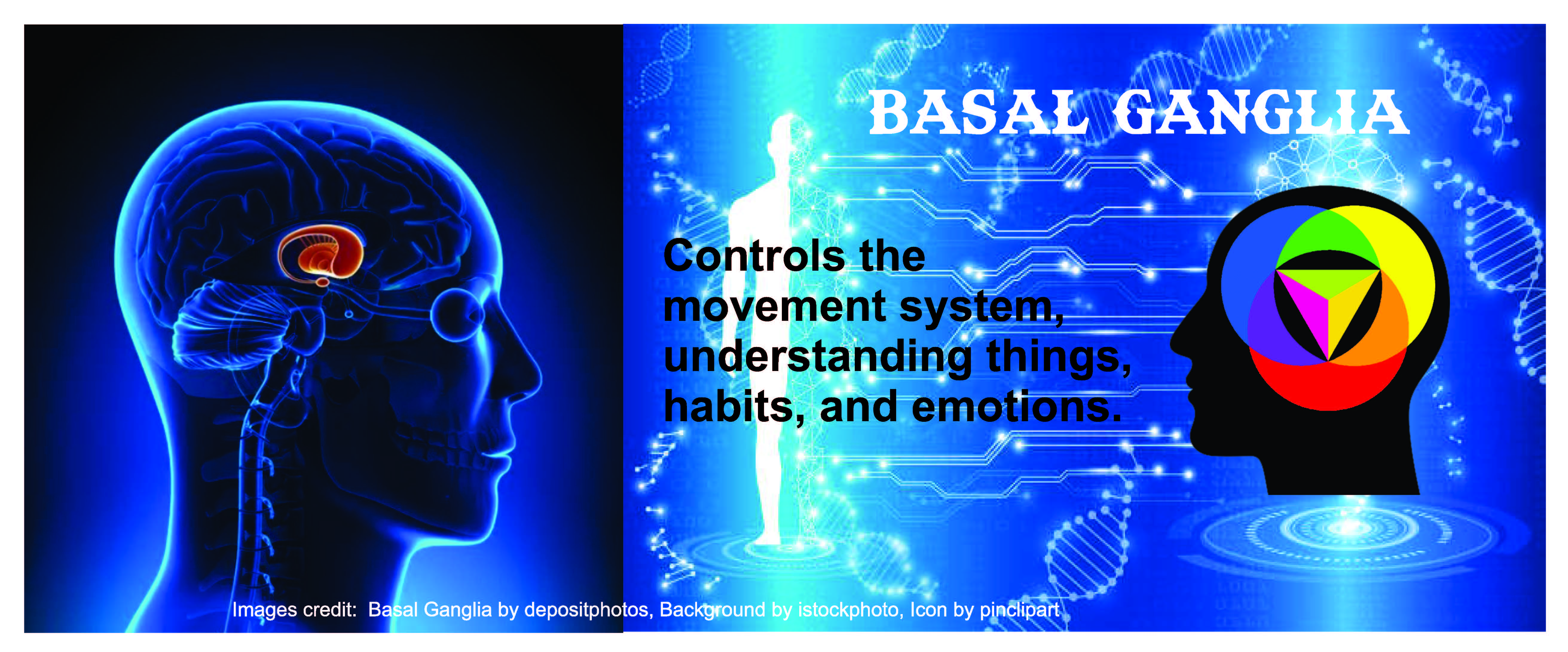
The basal ganglia are a group of brain structures linked together, handling complex processes that affect your entire body. While best known for their role in controlling your body’s ability to move, experts now know they also play a role in several other functions, such as learning, emotional processing and more.
The basal ganglia are best known for how they help your brain control your body’s movements. However, ongoing research continues to uncover other ways that the basal ganglia interact with other parts of your brain. Though experts continue to uncover more about the inner workings of the basal ganglia, there’s much about them that remains unknown.
Movement
The basal ganglia are a key part of the network of brain cells and nerves that control your body’s voluntary movements. They can approve or reject movement signals that your brain sends, filtering out unnecessary or incorrect signals. This lets you control certain muscles without also using other muscles that are nearby.
If the basal ganglia approve a signal, it continues to the motor pathways, the nerves that eventually carry the signal down your spinal cord and nerves to their destination muscle. If they don’t approve the signal, they redirect it into an area where other brain cells dampen those signals until they stop.
The parts of your brain that process information from your senses, namely sight, sound, smell, taste and touch, also send that information to your basal ganglia. That sensory information helps the basal ganglia refine your movements further.
Decision-making Another job of the basal ganglia is processing how you evaluate goals and risks. It also processes signals that affect your emotions and your motivation. That means it also plays a role in learning and forming habits, planning and carrying out tasks, and more.
HYPOTHALAMUS
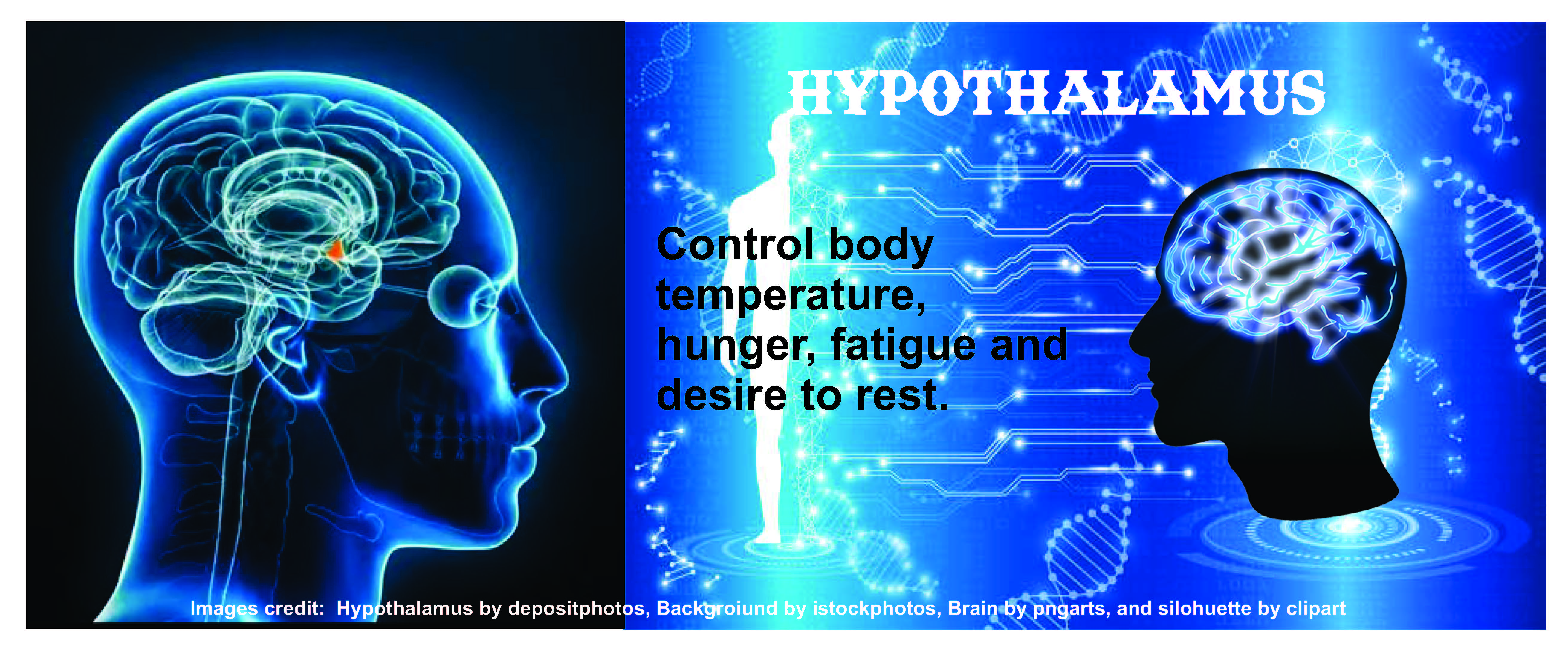
Your hypothalamus, a structure deep in your brain, acts as your body’s smart control coordinating center. Its main function is to keep your body in a stable state called homeostasis. It does its job by directly influencing your autonomic nervous system or by managing hormones. Many conditions can damage your hypothalamus, which can affect many bodily functions.
The hypothalamus is a structure deep within your brain. It’s the main link between your endocrine system and your nervous system. Your hypothalamus keeps your body balanced in a stable state called homeostasis.
Your hypothalamus receives chemical messages from nerve cells in your brain and from nerve cells in your body (your peripheral nervous system), which is also responding to signals outside your body.
Your hypothalamus performs many of its “body balancing” jobs either by directly influencing the autonomic nervous system or by managing hormones.
Your autonomic nervous system (bodily functions that work automatically) control several important functions, such as your heart rate and breathing (respiration).
THALAMUS
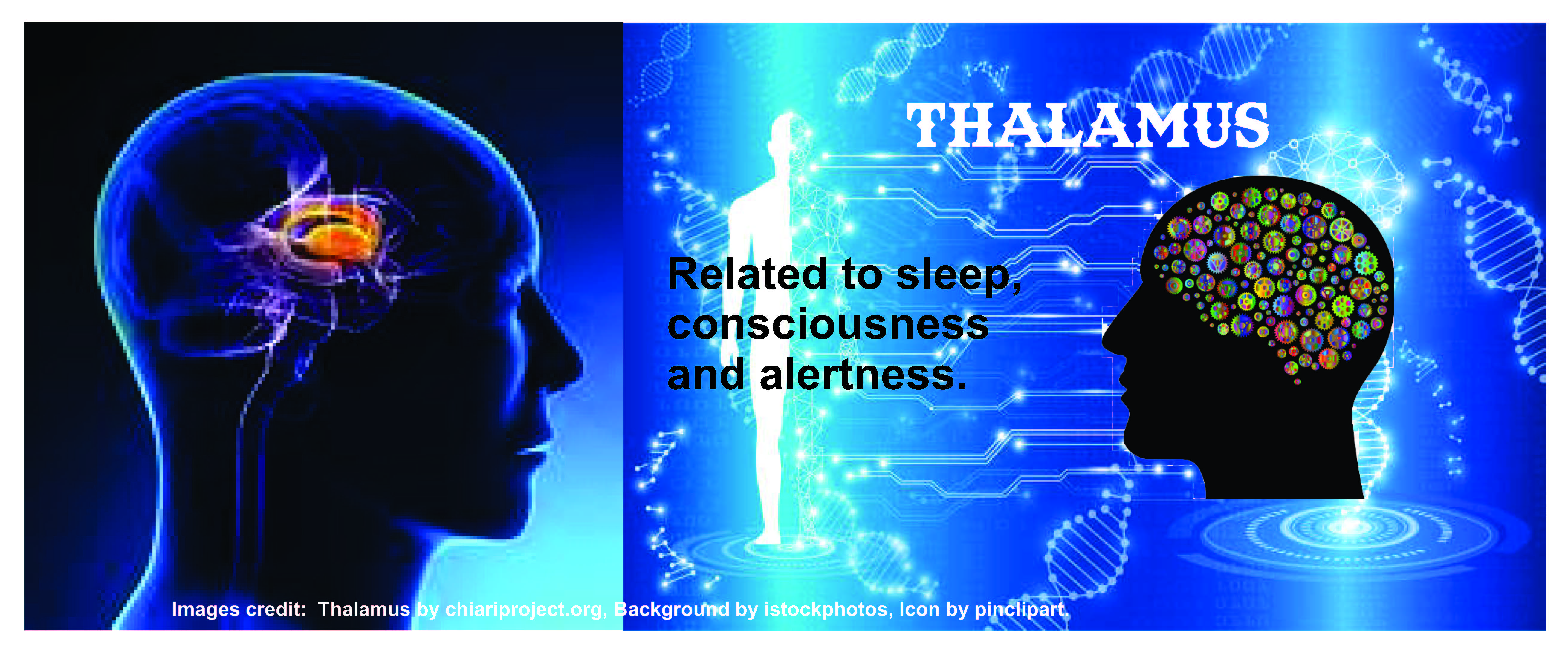
Your thalamus is your body’s information relay station. All information from your body’s senses (except smell) must be processed through your thalamus before being sent to your brain’s cerebral cortex for interpretation.
Your thalamus also plays a role in sleep, wakefulness, consciousness, learning and memory. Your thalamus is an egg-shaped structure in the middle of your brain. It’s known as a relay station of all incoming motor (movement) and sensory information — hearing, taste, sight and touch (but not smell) — from your body to your brain. Like a relay or train station, all information must first pass through your thalamus before being routed or directed to its destination in your brain’s cerebral cortex (the outermost layer of your brain) for further processing and interpretation. Your thalamus has many functions, including:
Your thalamus has many functions, including:
- Relaying sensory information. Taking in information in the form of nerve signals, from all of your senses (taste, touch, hearing, seeing), except smell, into your brain. Each sensory function has a thalamic nucleus that receives, processes and transmits the information to its related area within your cerebral cortex.
- Relaying motor (movement) information. Similar to sensory information, motor pathways all pass through your thalamus.
- Prioritizing attention. Your thalamus helps decide what to focus on among the vast amount of information that it receives.
- Role in consciousness. Your thalamus plays a role in keeping you awake and alert.
- Role in thinking (cognition) and memory. Your thalamus is connected with structures of your limbic system, which is involved in processing and regulating emotions, formation and storage of memories, sexual arousal and learning.
Your thalamus also contributes to perception and plays a role in sleep and wakefulness. (Source: Cleveland Clinic)
HIPPOCAMPUS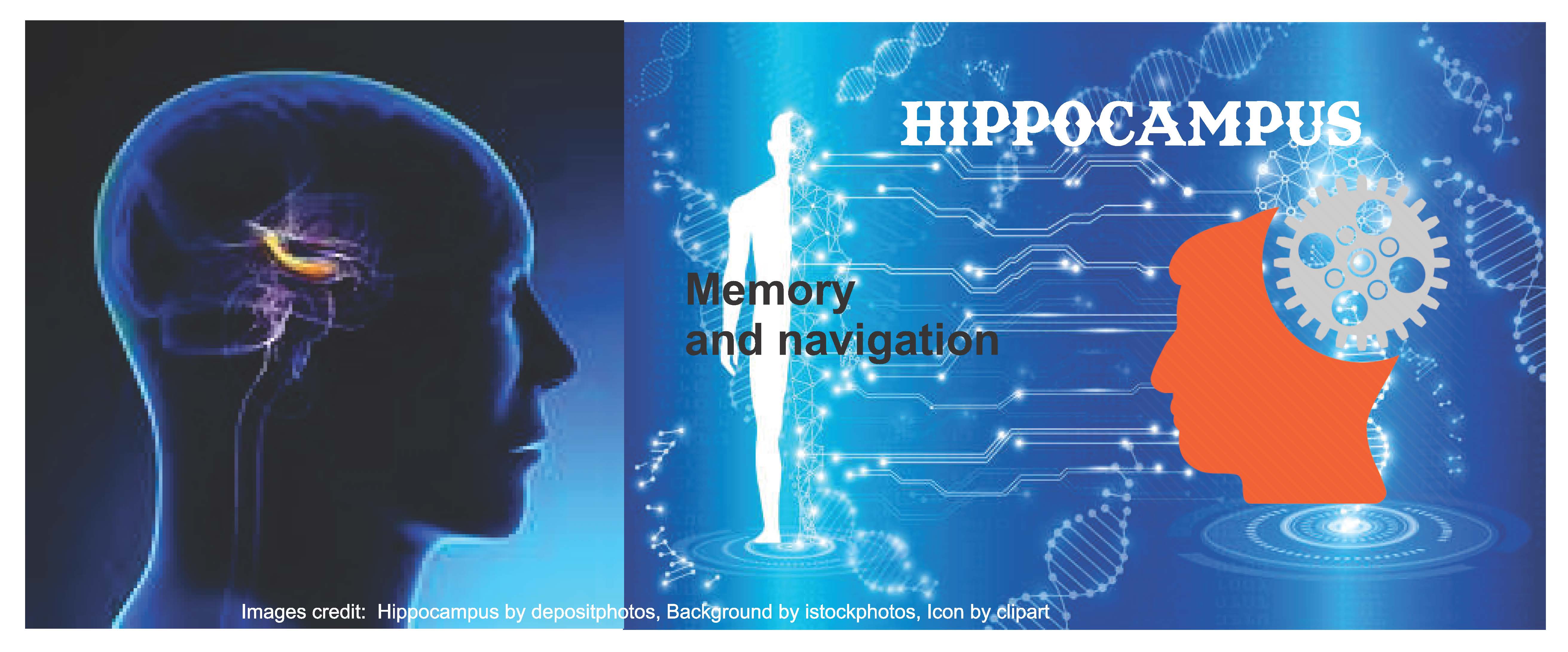
The main functions of the hippocampus involve human learning and memory. It is a part of the brain found in the inner folds of the temporal lobe.
The hippocampus helps human’s process and retrieves two types of memory, declarative memories and spatial relationships.
Declarative memories are those related to facts and events. Examples can include learning how to memorize speeches or lines in a play. Spatial relationship memories involve pathways or routes. For example, when a cab driver learns a route through a city, they use spatial memory.
Spatial relationship memories appear to be stored in the right hippocampus.
In addition, short-term memories are converted into long-term memories in the hippocampus. These are then stored elsewhere in the brain.
What can go wrong?
If one or both parts of the hippocampus are damaged by illnesses such as Alzheimer’s disease, or if they are hurt in an accident, the person can experience a loss of memory and a loss of the ability to make new, long-term memories.
They may be unable to remember some things that happened shortly before the damage, but they may still remember things that happened long ago. This is because the long-term memories are stored in another part of the brain once they become long-term.
Transient global amnesia is a specific form of memory loss that develops suddenly, seemingly on its own, and then goes away fairly quickly.
Most people with transient global amnesia eventually regain their memories, but the reasons why the problem occurs and why it resolves are unclear. It may be that damage to the hippocampus plays a role.
Damage to the hippocampus can make it hard to remember how to get from one place to another. The person may be able to draw a map of the neighborhood they lived in as a child but find that going to a store in a new area can be difficult.
Smaller hippocampus volume may also affect conditions such as schizophrenia and post-traumatic stress disorder (PTSD), according to a 2021 Meta analysis and a 2017 study.
Diseases that affect the hippocampus A range of conditions can adversely affect the hippocampus, including long-term exposure to high levels of stress.
Several diseases and factors may also impair the ability of the hippocampus to do its job.
Alzheimer’s diseaseAlzheimer’s disease may affect the area of the hippocampus first. Early signs of Alzheimer’s disease become noticeable when the person begins to lose their short-term memory. They may also find it difficult to follow directions. As the disease progresses, the hippocampus loses volume, and it becomes harder to function in daily life.
Epilepsy
Changes to the hippocampus are also associated with epilepsy. has found a connection between epilepsy and a difference in how the hippocampus makes new neurons. However, it is not clear whether these differences happen before or after the onset of epilepsy.
Depression and stress In people with severe depression, the hippocampus has less volume.
Scientists are unsure whether the small size results from depression or if it is a contributing factor. Evidence suggests that stress may cause a negative impact on the hippocampus. (Credit Medical News Today)
All rights reserved. No part of this publication will be reproduced, stored in a retrieval system, or translated in any language in any form by means without permission of Herbert Y. Magtoto. The “AFC Biomedica USAl” is for informational purposes only. Information contained herein is NOT intended to be taken as medical advice. Sharing this information to your health practitioner is beneficial and practical. Statements herein have not been evaluated by the Food & Drug Admin. The product is not intended to diagnose, cure, treat, or prevent any disease. (Source: AFC Biomedical) Layout: Herbert Y. Magtoto.